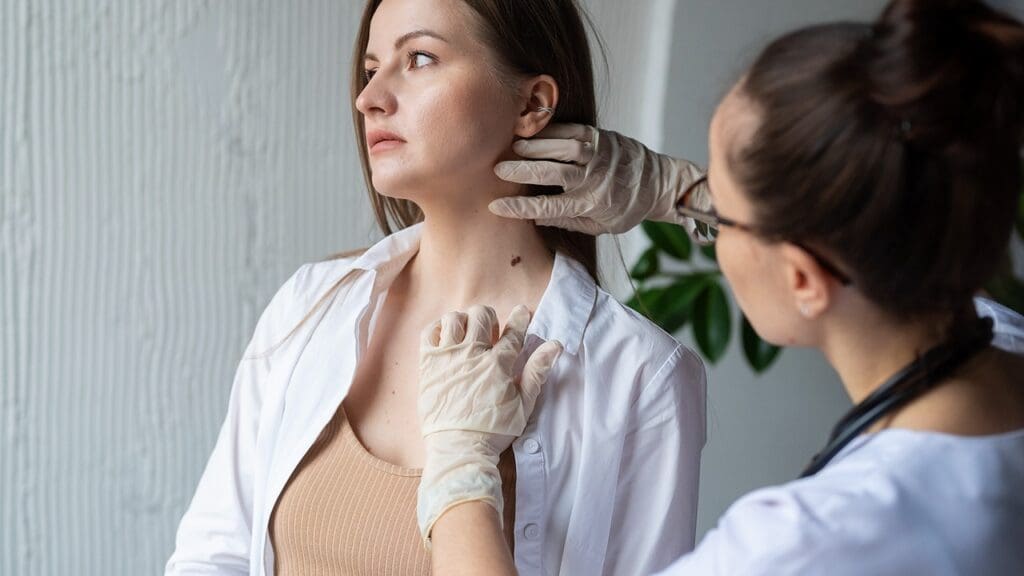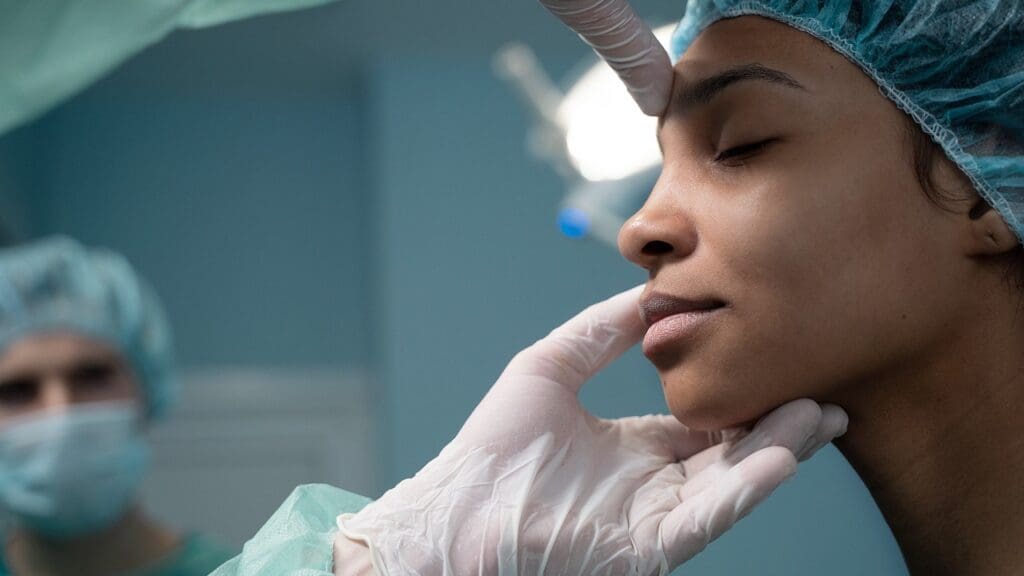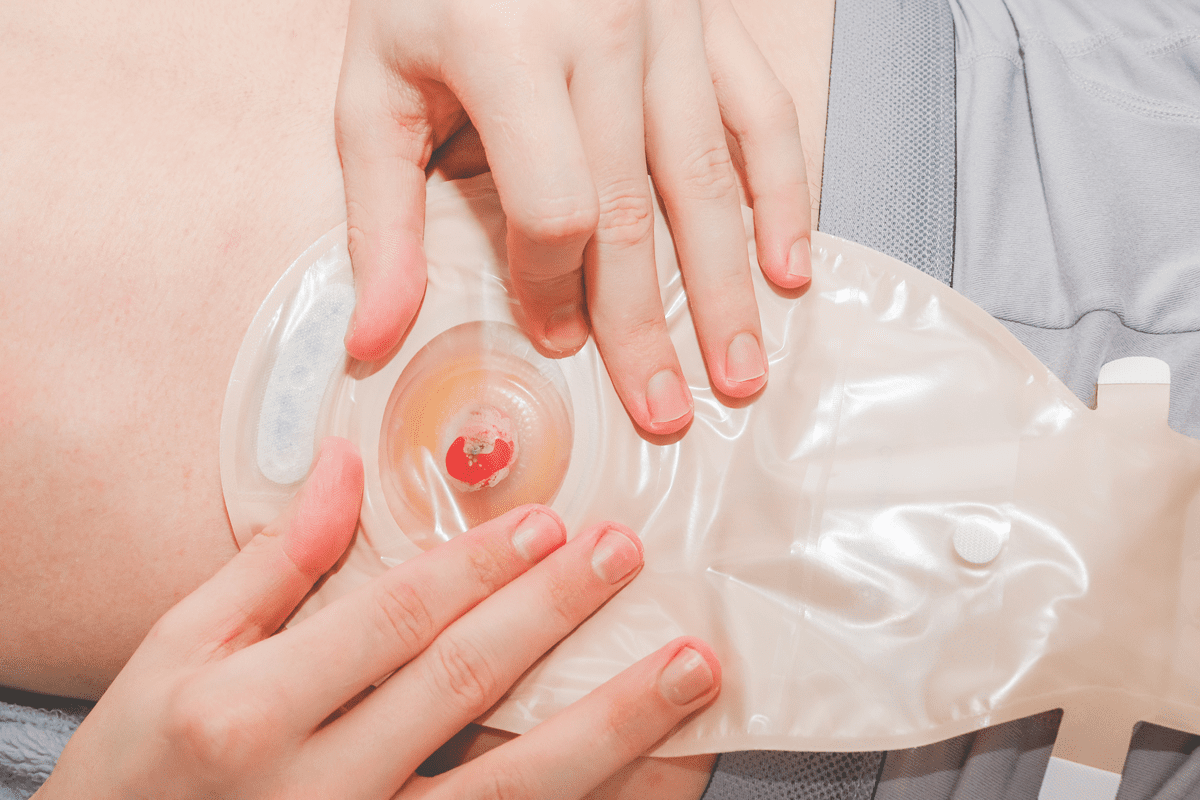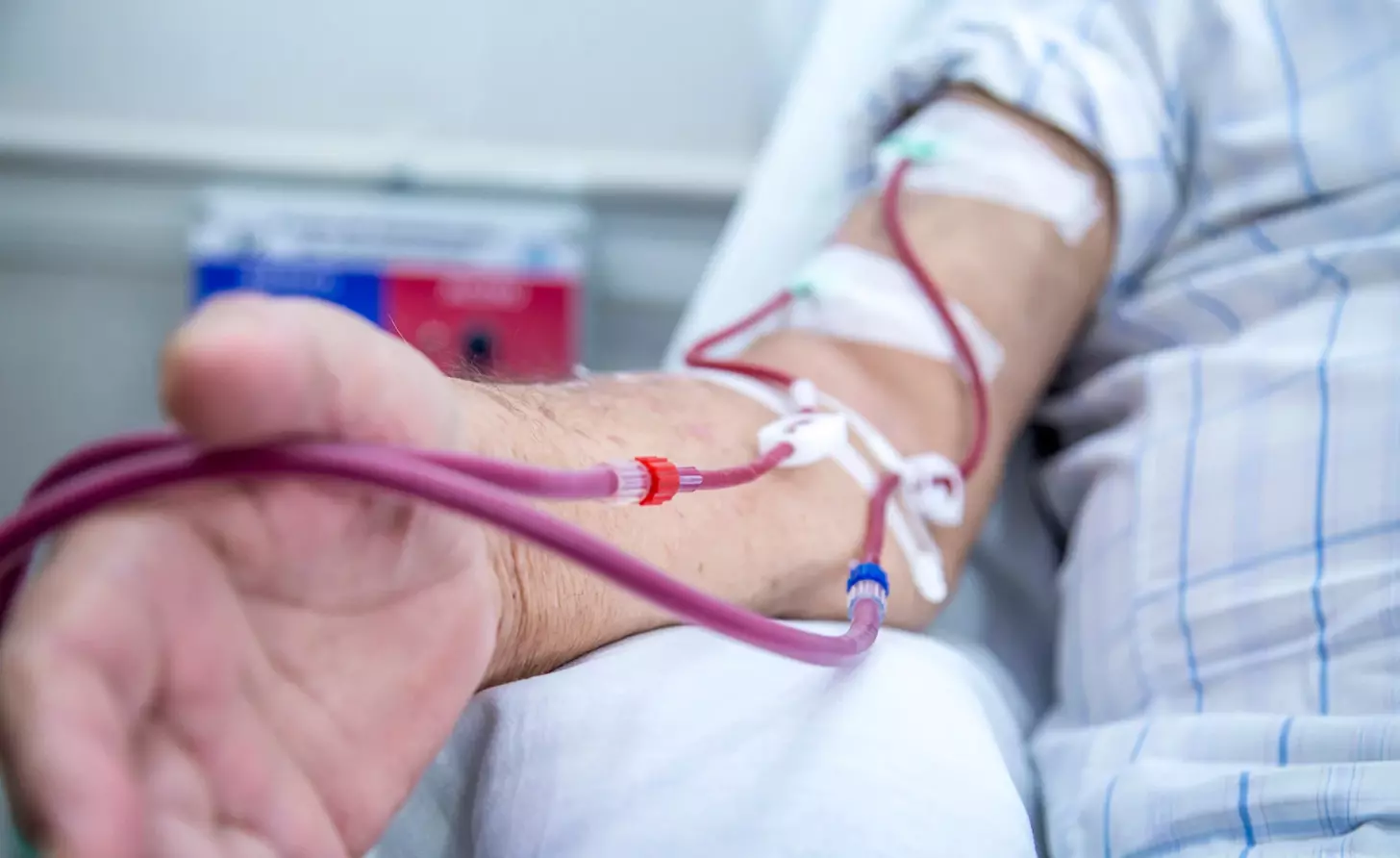Last Updated on November 27, 2025 by Bilal Hasdemir
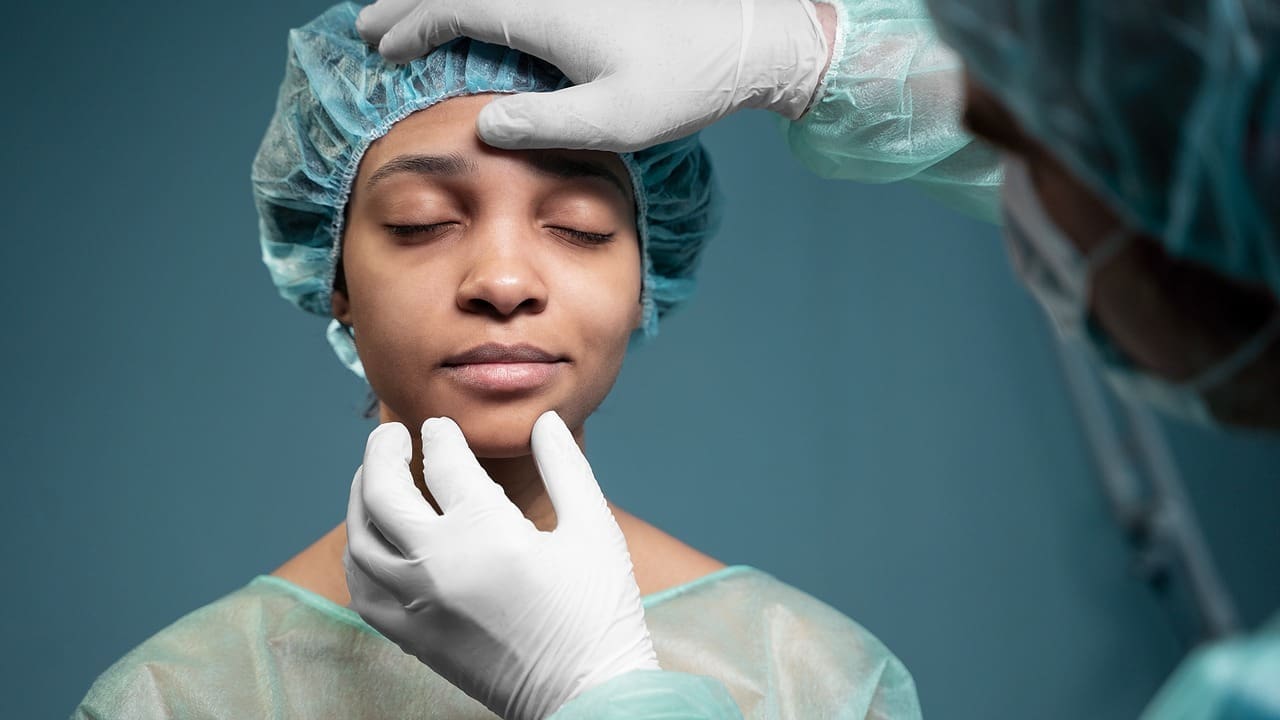
Getting a skin cancer diagnosis can be scary. But today, there are more ways to treat it than before. Mohs surgery is one method, but some people look for alternative treatments for their own reasons.
At Liv Hospital, we focus on giving you the best care. We know you want treatments that work well together, like for other cancers. This is what we aim for with skin cancer too.
We look at what each patient needs and offer trusted alternatives for skin cancer treatment. By exploring these options, we can find the best treatment plan together.
Key Takeaways
- Patients have various alternatives to Mohs surgery for skin cancer treatment.
- Liv Hospital provides innovative and patient-centered care.
- Alternative treatments are considered based on individual patient needs.
- Holistic approaches to skin cancer treatment are available.
- Effective treatment options are offered with a focus on patient care.
Understanding Skin Cancer and Available Treatment Options
Effective skin cancer treatment starts with knowing the different types and their treatments. Skin cancer includes several types, each with its own characteristics and treatment needs.
Common Types of Skin Cancer
The most common types are basal cell carcinoma, squamous cell carcinoma, and melanoma. Basal cell carcinoma grows slowly and rarely spreads. Squamous cell carcinoma is more aggressive and can spread if not treated quickly. Melanoma is less common but very dangerous because it can spread easily.
| Type of Skin Cancer | Characteristics | Common Treatment Approaches |
|---|---|---|
| Basal Cell Carcinoma | Slow-growing, low risk of metastasis | Surgical excision, Mohs surgery, topical treatments |
| Squamous Cell Carcinoma | More aggressive, high risk of metastasis | Surgical excision, Mohs surgery, radiation therapy |
| Melanoma | High risk of metastasis, dangerous | Surgical excision, immunotherapy, targeted therapy |
The Importance of Early Detection and Treatment
Finding skin cancer early is key to better treatment results. Regular skin checks and knowing about skin changes help spot cancer early. Early treatment can prevent complications and improve survival chances.
It’s vital to see a dermatologist for any skin concerns. Knowing about alternatives to Mohs surgery for basal cell and squamous cell carcinoma helps patients make better choices.
What is Mohs Surgery and Why is it Recommended?
Mohs micrographic surgery is a cutting-edge method for treating skin cancer. It’s perfect for areas where looks matter a lot. This method is known for its high success rate and for saving healthy skin.
The Mohs Micrographic Surgery Procedure
The Mohs method removes skin cancer layer by layer. Each layer is checked under a microscope until all cancer is gone. This careful approach removes only the bad cells, keeping the good ones.
Success Rates and Applications
Mohs surgery works well for basal cell and squamous cell carcinomas. It’s great for tumors in sensitive spots like the face, ears, and nose. Here, keeping the skin looking good is key.
Limitations and Drawbacks
Not everyone can have Mohs surgery. The size and spot of the tumor, plus the patient’s health, play a part. It can take a lot of time and needs special tools and skills.
When to Consider Alternatives to Mohs Surgery
Mohs surgery is often chosen for skin cancer treatment. Yet, there are times when other treatments might be better. Every patient is different, and what works for one might not work for another.
Medical Contraindications
Some people can’t have Mohs surgery because of health issues. For example, those with bleeding problems or on blood thinners need safer options. These alternatives reduce the risk of complications.
Personal Preferences and Circumstances
What you prefer also matters in choosing treatment. Some might want treatments that are less invasive or worry about scarring. We listen to our patients to meet their needs and concerns.
Exploring Effective Alternatives to Mohs Surgery
Looking into alternatives to Mohs surgery can help patients make better choices for their skin cancer treatment. When you get a skin cancer diagnosis, knowing your options is key.
Overview of Treatment Options
There are many alternatives to Mohs surgery, like ED&C (Curettage and Electrodesiccation), cryosurgery, imiquimod cream, and radiation therapy. Each has its own good points and things to think about.
Comparing Effectiveness and Recovery Times
It’s important to look at how well these alternatives work and how long it takes to recover. For example, ED&C is often compared to Mohs surgery for some skin cancers. The choice between ED&C and Mohs surgery (ed&c vs mohs) depends on the cancer type and stage.
| Treatment | Effectiveness | Recovery Time |
|---|---|---|
| ED&C | High for certain skin cancers | Typically quick, with minimal downtime |
| Cryosurgery | Effective for early-stage cancers | Generally fast, with some scabbing |
| Imiquimod Cream | Good for superficial cancers | Variable, depending on treatment duration |
| Radiation Therapy | Highly effective for various stages | Can vary; multiple sessions are common |
Making the Right Choice for Your Situation
Choosing the right option means thinking about your health, the cancer type and stage, and what you prefer. For those in places like Hollister, MO, talking to a doctor about alternative to Mohs surgery can help find the best treatment.
Alternative #1: Surgical Excision
For those looking for Mohs surgery alternatives, surgical excision is a good choice. It involves removing the tumor and some healthy tissue around it. This method works well for many types of skin cancer.
How Standard Excision Differs from Mohs
Surgical excision is different from Mohs surgery in how it removes cancerous tissue. Mohs surgery checks the tissue during the procedure. But, standard excision removes the tumor and some healthy tissue first, then checks it later.
Ideal Candidates for Surgical Excision
People with skin cancers in less visible areas or with certain health issues might choose surgical excision. Those who prefer a simpler surgery method also find it appealing.
Recovery and Success Rates
Recovering from surgical excision usually means closing the wound. This can be done with stitches or skin grafts, depending on the area. Success rates are high, mainly for early-stage skin cancers. This makes it a solid treatment choice.
Surgical excision strikes a good balance between being effective and straightforward. It’s a great option for the right candidates, alongside Mohs surgery.
Alternative #2: Radiation Therapy
Radiation therapy is becoming a popular choice instead of Mohs surgery, mainly for older patients or those with health issues. It uses high-energy rays to kill cancer cells. This method is a non-surgical way to treat skin cancer.
Types of Radiation Treatments for Skin Cancer
There are different types of radiation therapy for skin cancer. External beam radiation therapy (EBRT) sends radiation from outside the body to the cancer. Brachytherapy puts a small radioactive source close to or in the tumor.
Benefits for Elderly or Medically Complex Patients
Radiation therapy is great for older patients or those with serious health problems. It’s a safer option than surgery, avoiding risks like infection or long recovery times. This makes it a good choice for patients who can’t have Mohs surgery.
Side Effects and Treatment Schedule
Radiation therapy is usually safe, but it can cause skin irritation, tiredness, and skin color changes. The treatment time varies, from a few days to weeks, based on the cancer type and stage. Knowing these details helps patients make better treatment choices.
Alternative #3: Cryosurgery
Cryosurgery, or cryotherapy, is becoming a popular choice for treating certain skin cancers. It’s seen as a less invasive option compared to traditional surgeries like Mohs. This method freezes cancer cells, causing them to die.
The Freezing Technique Explained
Cryosurgery uses liquid nitrogen to freeze cancer cells. The cold destroys these cells, which the body then removes naturally. Ablation techniques like cryosurgery are growing in popularity for their non-invasive approach.
Best Applications for Cryosurgery
Cryosurgery works well for early-stage basal cell and squamous cell carcinomas. It’s also considered for those who can’t have surgery due to health issues.
Recovery Process and Effectiveness
Recovery from cryosurgery is usually simple, with some redness and swelling. Its success depends on the cancer type and stage. When used right, cryosurgery can be very effective.
| Treatment | Effectiveness | Recovery Time |
|---|---|---|
| Cryosurgery | High for early-stage skin cancers | Typically a few days to a week |
| Mohs Surgery | High for complex or recurrent cases | Variable, often longer than cryosurgery |
The table shows cryosurgery’s quick recovery time compared to Mohs surgery. This makes it a good option for many patients.
Alternative #4: Curettage and Electrodesiccation (ED&C)
For those looking for Mohs surgery alternatives, curettage and electrodesiccation (ED&C) is a good choice. We know every patient is different. ED&C is one of the treatments we consider for some skin cancers.
The ED&C Procedure
The ED&C process has two steps. First, the tumor is scraped off with a curette. Then, an electric current is used to kill any leftover cancer cells. This method is fast and can be done in a clinic.
Suitable Skin Cancer Types and Locations
ED&C works well for basal cell carcinoma (BCC) and squamous cell carcinoma (SCC) in safe areas. We check each patient to see if ED&C is the best choice.
Healing and Cosmetic Results
Healing from ED&C is usually easy, with little scarring. The look after treatment can be good, better than some surgeries.
We look closely at each patient for ED&C. We consider the cancer type, size, and where it is, plus the patient’s health. This way, we make sure our patients get the best treatment for them.
Alternative #5: Topical Treatments
Topical treatments are a good choice for those who don’t want surgery. They work well for skin cancers that haven’t gone deep into the skin.
Imiquimod and 5-Fluorouracil
Imiquimod cream and 5-fluorouracil (5-FU) are two common treatments. Imiquimod boosts the body’s immune system to fight cancer. 5-FU kills cancer cells directly. Imiquimod cream is great for treating superficial basal cell carcinoma.
How you apply these treatments differs. You use imiquimod cream once a day, a few times a week, for weeks. The exact time depends on the cancer and how well you respond.
Treatment Duration and Application
The time needed for treatment changes based on the cancer type, size, and where it is. Treatments can last from weeks to months. Following the treatment plan is key to success.
| Treatment | Application Frequency | Typical Duration |
|---|---|---|
| Imiquimod Cream | 3 times a week | 4-6 weeks |
| 5-Fluorouracil | Once or twice daily | 2-4 weeks |
Effectiveness for Different Skin Cancers
Topical treatments work best for superficial basal cell carcinoma and some squamous cell carcinoma in situ. Their success depends on the cancer’s depth and location. Seeing a dermatologist to choose the right treatment is important.
In summary, treatments like imiquimod cream are a good alternative to Mohs surgery for some skin cancers. They are non-invasive and effective, making them a popular choice for those who want to avoid surgery.
Special Considerations for Facial Skin Cancer Treatment
The face is very visible and sensitive. Treating skin cancer here is complex. We must think about how well the treatment works and its effect on looks and life quality.
Alternatives to Mohs Surgery on Face
Mohs surgery is often chosen for facial skin cancers. It has a high success rate and saves more tissue. But, there are other treatments that might be better for some cases. These include:
- Surgical excision, which removes the tumor and some healthy tissue.
- Radiation therapy, which works for some cancers and saves more tissue.
- Cryosurgery, a method that freezes cancer cells, but its success can vary.
Cosmetic Outcomes and Scarring
Cosmetic results are key when treating facial skin cancer. We aim to reduce scarring and keep the face looking natural. The treatment choice greatly affects the look.
Radiation therapy can lead to better looks because it doesn’t remove tissue. This might lessen scarring.
Treatment Options for Sensitive Areas Like the Nose and Ears
The nose and ears are special challenges. Their complex shape and visibility make treatment choices critical. We aim to find treatments that work well and don’t harm their look or function.
For these areas, we might choose radiation therapy or cryosurgery. They can be effective and might cause less damage than surgery.
Comparing Treatment Options for Different Skin Cancer Types
Different skin cancers need different treatments. It’s important to know these differences to choose the best option. The right treatment can change a lot, depending on the type of cancer.
Alternatives to Mohs Surgery for Basal Cell Carcinoma
For basal cell carcinoma, you can choose from surgical excision, radiation therapy, or cryosurgery. The choice depends on the tumor’s size, location, and how aggressive it is.
Alternatives to Mohs Surgery for Squamous Cell Carcinoma
For squamous cell carcinoma, you might consider surgical excision, radiation therapy, or topical treatments like imiquimod or 5-fluorouracil. The treatment depends on the cancer’s stage and how it behaves.
Treatment Selection Based on Cancer Stage and Characteristics
The stage and characteristics of the cancer are key in choosing treatment. We look at the tumor’s size, location, and the patient’s health. This helps us pick the best treatment plan.
| Cancer Type | Treatment Options | Considerations |
|---|---|---|
| Basal Cell Carcinoma | Surgical Excision, Radiation Therapy, Cryosurgery | Tumor size, location, aggressiveness |
| Squamous Cell Carcinoma | Surgical Excision, Radiation Therapy, Topical Treatments | Cancer stage, tumor characteristics, patient health |
Conclusion: Making an Informed Decision About Your Skin Cancer Treatment
Being informed is key when it comes to skin cancer treatment. We’ve looked at many options other than Mohs surgery. These include surgical excision, radiation therapy, cryosurgery, and more. Each option has its own benefits and things to consider.
It’s important for patients to know all their treatment choices. This way, they can make decisions that fit their needs. By understanding the different options, patients can work with their doctors to find the best treatment.
The right treatment for skin cancer depends on many things. These include the cancer type, its stage, the patient’s health, and personal choices. We suggest talking to a healthcare provider to find the best option. This ensures the best outcome for the patient’s treatment journey.
FAQ
Is there an alternative to Mohs surgery for skin cancer treatment?
Yes, there are several alternatives to Mohs surgery. These include surgical excision, radiation therapy, cryosurgery, curettage and electrodesiccation (ED&C), and topical treatments.
What are the alternatives to Mohs surgery on the face?
For facial skin cancer, you can choose from surgical excision, radiation therapy, and cryosurgery. These options can treat the cancer effectively while keeping scars and cosmetic impact low.
Are there alternatives to Mohs surgery for basal cell carcinoma?
Yes, for basal cell carcinoma, you can consider surgical excision, radiation therapy, cryosurgery, ED&C, and topical treatments like imiquimod and 5-fluorouracil.
What are the alternatives to Mohs surgery for squamous cell carcinoma?
For squamous cell carcinoma, you can choose from surgical excision, radiation therapy, and cryosurgery. The best option depends on the cancer’s stage, location, and your health.
How does ED&C compare to Mohs surgery?
ED&C is simpler than Mohs surgery. It involves scraping and cauterizing the tumor. It’s good for certain skin cancers that are not too deep or large.
Can radiation therapy be used as an alternative to Mohs surgery?
Yes, radiation therapy is a good alternative for some patients. It’s often chosen for the elderly or those with complex medical conditions. It offers effective treatment with fewer surgical risks.
What are the benefits of choosing alternatives to Mohs surgery?
Choosing alternatives to Mohs surgery can have benefits. These include less invasive procedures and potentially fewer complications. In some cases, they can also offer better cosmetic outcomes, depending on the treatment and your situation.
Are there alternatives to Mohs surgery near me?
Yes, you can find various alternatives to Mohs surgery at different medical centers. It’s best to talk to a healthcare provider or dermatologist to find the right treatment options in your area.
How do I choose the right alternative to Mohs surgery for my skin cancer?
Choosing the right alternative involves several factors. Consider the type and stage of your skin cancer, your health, personal preferences, and the cosmetic outcomes. Talking to a dermatologist or oncologist can help you find the best treatment plan for your situation.
References
- National Center for Biotechnology Information (NCBI) / PMC: https://pmc.ncbi.nlm.nih.gov/articles/PMC7787325/
- Skin Cancer Foundation: https://www.skincancer.org/skin-cancer-information/basal-cell-carcinoma/bcc-treatment-options/
- American Cancer Society (ACS): https://www.cancer.org/cancer/types/basal-and-squamous-cell-skin-cancer/treating/other-than-surgery.html


